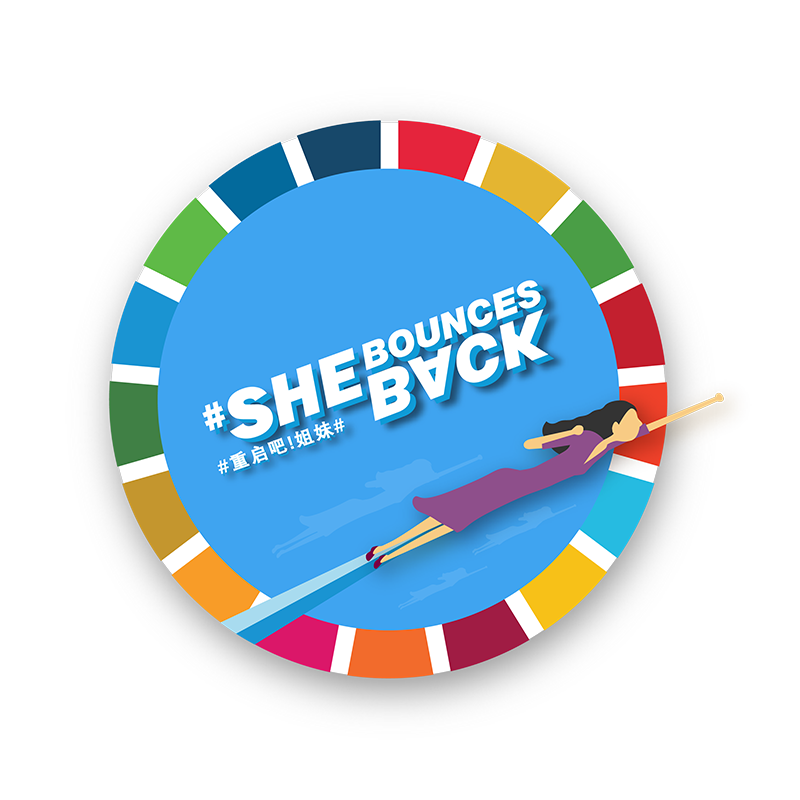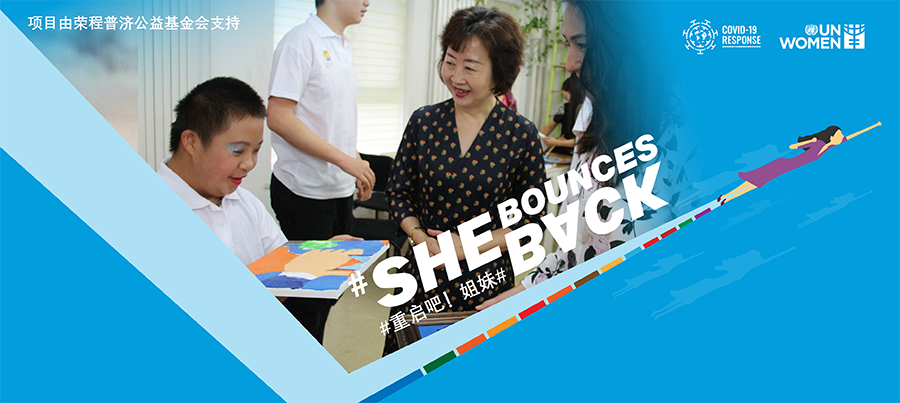
Zhang Junru: Giving wings to
disabled children – and their carers
There are about 14 million people on the autism spectrum inChina, and around one in every 68 is a child under the age of 14. The high cost of medical treatment and rehabilitation means that families with children on the spectrum can bear a heavy financial burden. Zhang Junru founded the Golden Wings Art Rehabilitation Service Center for Disabled Children 11 years ago with a self-raised startup fund of RMB100,000. Through her company she provides an affordable education for mostly neurologically diverse children, based around sports and art. While the pandemic was a chance to expand GoldenWings’ student base, says Zhang, it also importantly helped her staff connect with their students’ exhausted primary carers, most of them women.
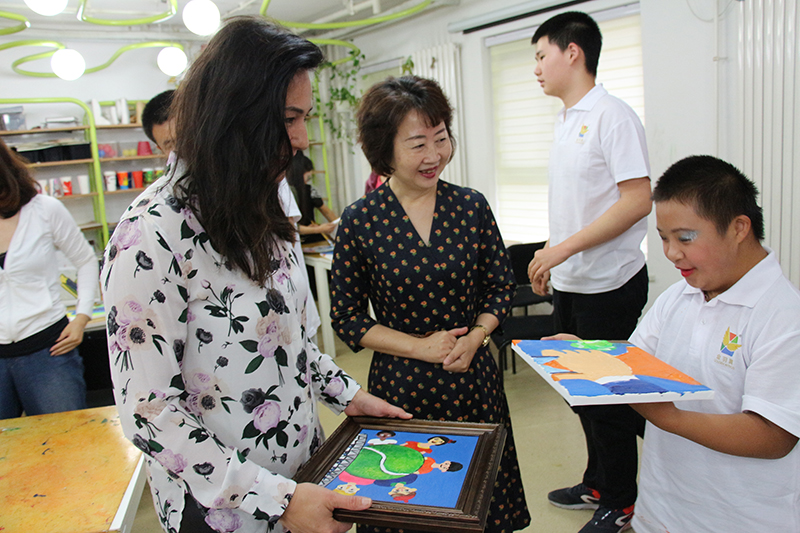
Zhang Junru (middle) chats with a student and
their parent at Golden Wings. Photo: Zhang Junru
“I believe that every child is unique, with irreplaceable potential. I named our centre ‘Golden Wings’ because I hoped to give disabled children wings through art and sports, stimulating their cognitive development in a fun and relaxed setting. We have more than 200 students, mainly those on the autism spectrum, but also those with Down’s Syndrome, mild cerebral palsy, mental impairments and hearing impairments.
When the school season was first disrupted by the outbreak, I remember feeling very helpless, as if everything had stopped. We and the parents had to explain to the children over and over again why they couldn’t come to class and why they should wear masks. We arranged ‘homework’ for them as much as possible, so that they could keep focusing on fine hand-eye and body coordination and enrich their home lives.
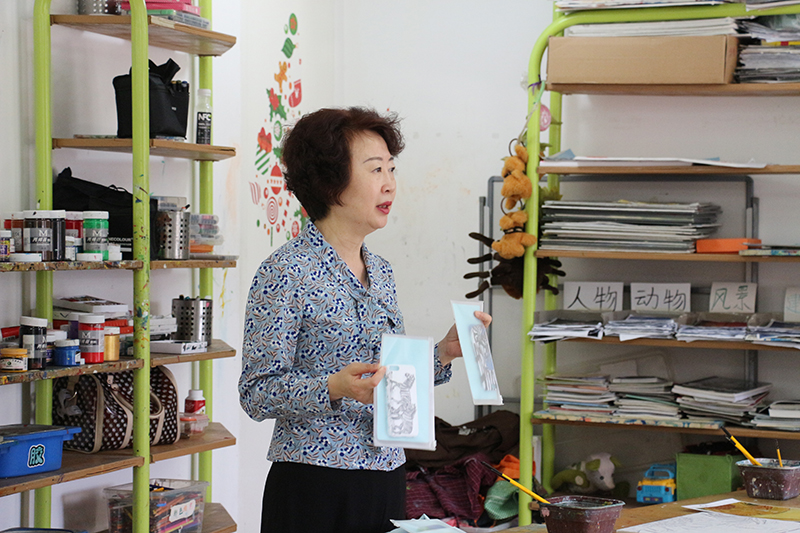
Zhang Junru showcases her students’ art. Photo:Zhang Junru
We showed them online how they could record their impressions of frontline workers with paintbrushes. This led to various exhibitions and even selling re-created versions of our students’ work, with profits going to the families and our centre. A mask or a painting may be thin and small, but it builds a bridge between the children and the world. I am always looking for ways to help these children be more visible and accepted by broader society. As part of the Star Arts Alliance we also work with more than 20 compassionate enterprises to help neurologically diverse young adults get involved in social employment.
During the most difficult periods, parents, and especially the mothers who mostly took care of their children, suffered the most. They would spent 24 hours taking care of their daily needs, while constantly explaining and persuading them to stay safe. I think many were on the verge of breakdowns. I asked our teachers to call these mothers once a week for at least half an hour to ease their anxiety by talking. I asked an essential oil manufacturers to send them soothing oils. On the eve of our national Mother’s Day, our teachers recorded a short video to teach children a ‘love mommy’ gesture dance – it moved many mothers to tears.
Now Golden Wings has ushered in the 2021 school season. Most of the children are brought to class by their mothers and we create an atmosphere where parents can support each other too, share the difficulties they and their children face as they grow up, and also just have fun.
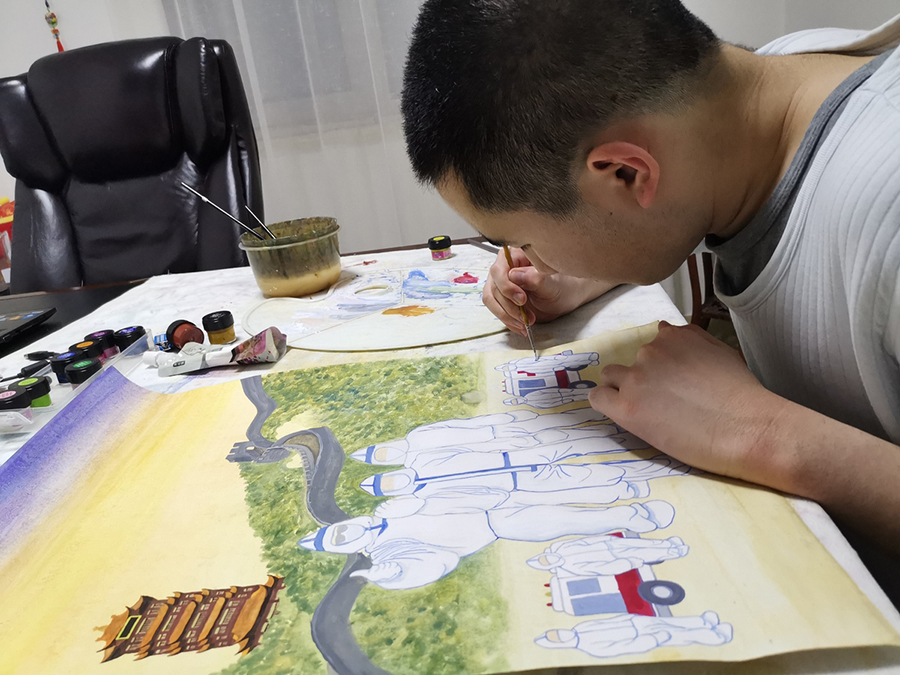
A Golden Wings student works on a
COVID-19 related painting. Photo: Zhang Junru
Working online during the pandemic opened a new window for us and broke geographical restrictions. Children who are based farther away signed up for our online sessions and we grew by 16 students. In the future I hope to connect disabled children across the country with online courses, although I also want to help our children get out of the art studio and more in touch with the outside world.
A lot of effort is needed to provide disabled and neurologically diverse children and their families with the care that they need, and the support of all sectors of society. The children particularly need us. They are sweet and clingy, and their smiles can reach the softest spot in your heart. If you meet them in public places, please don’t make a fuss, just give them a big smile.”
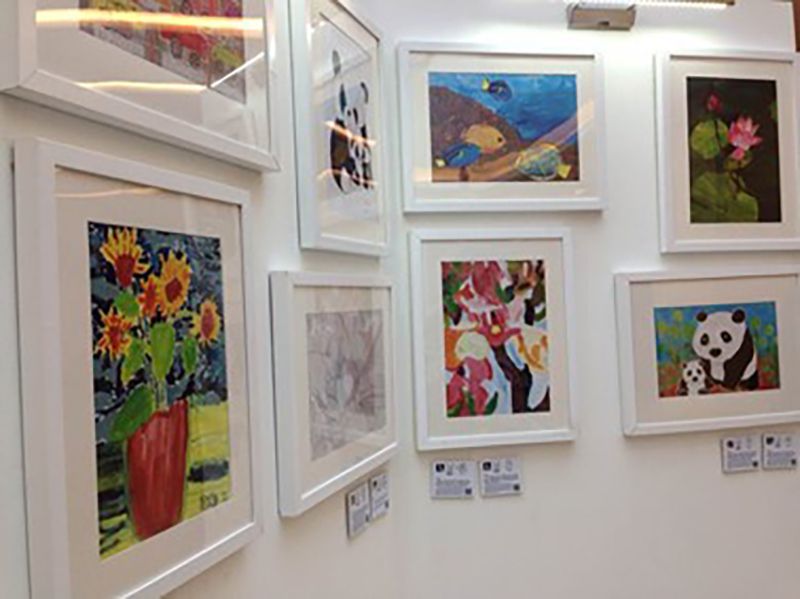
Art work by Golden Wings students. Photo: Zhang Junru
